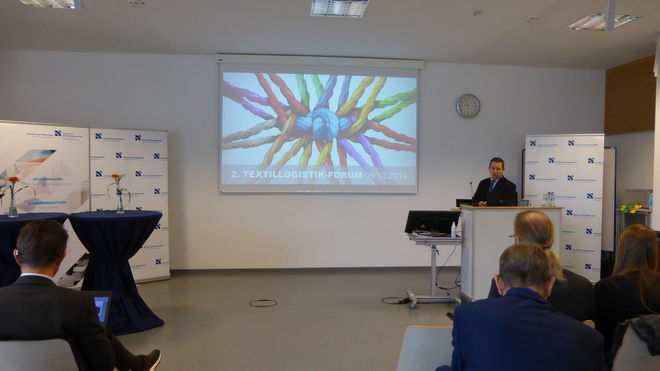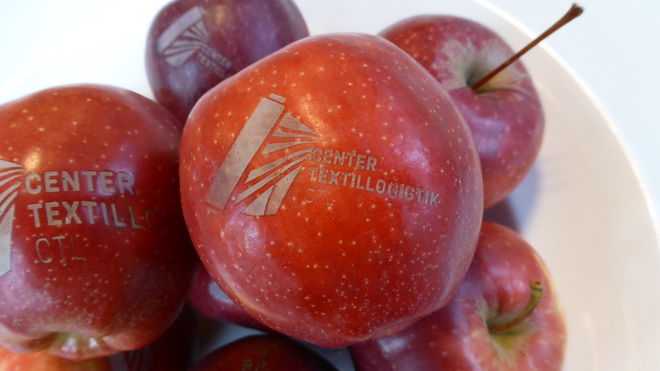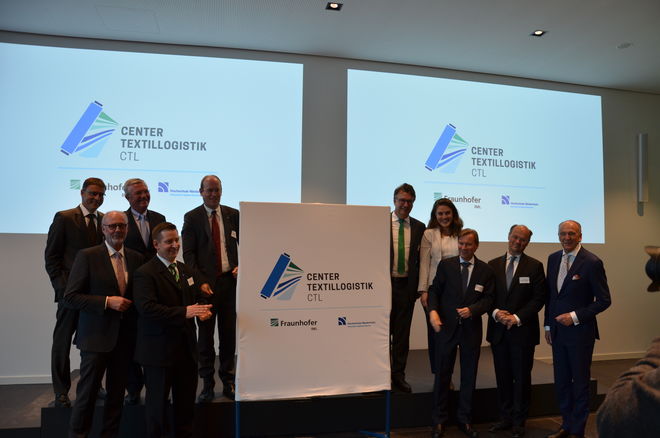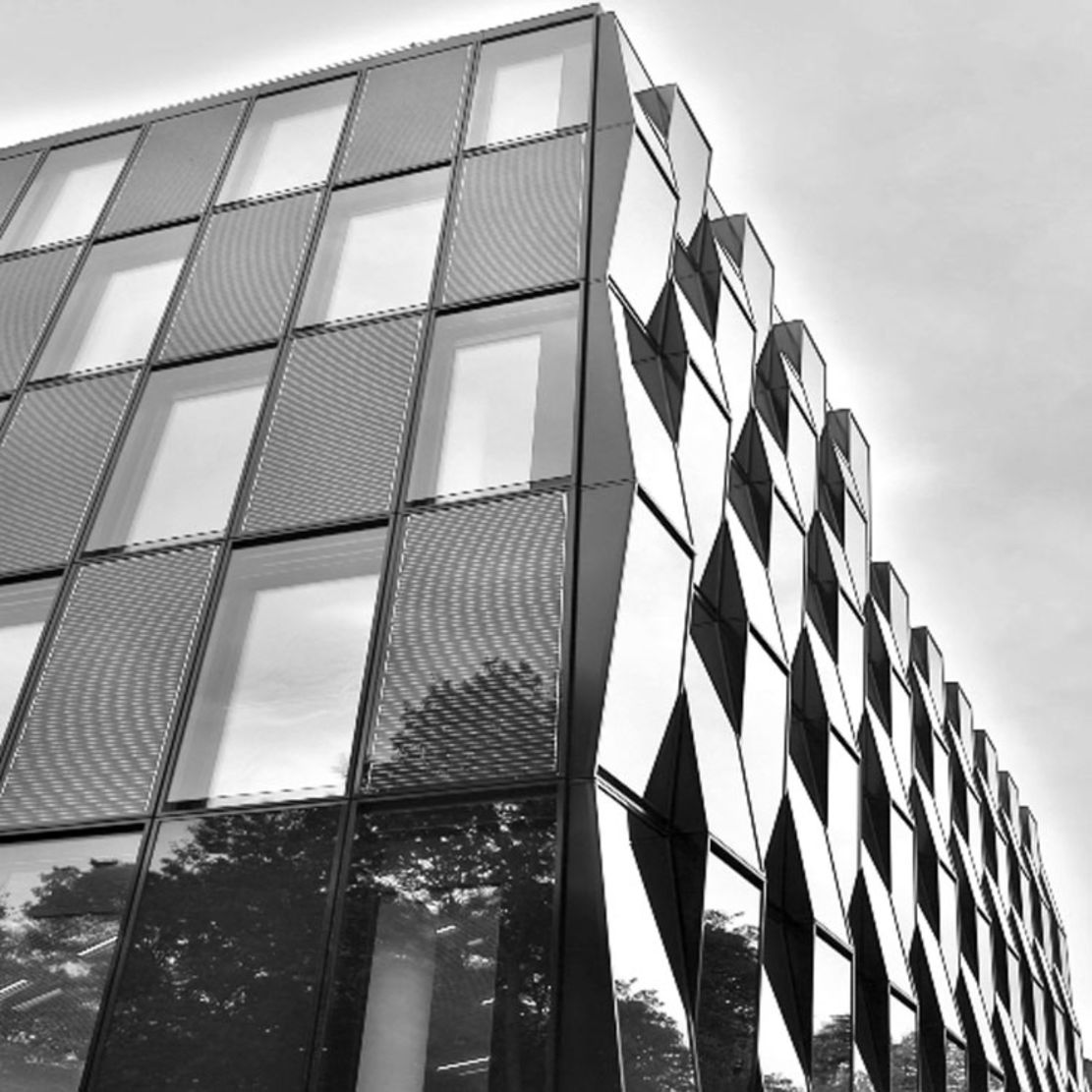Mönchengladbach, 22 October. The new Center Textile Logistics (CTL) was opened today at the new Textile Academy on the Mönchengladbach campus of the Hochschule Niederrhein. The CTL was created as a driver of innovation for the local textile industry. It was founded last year as a cooperation project by the Hochschule Niederrhein and the Fraunhofer Institute for Material Flow and Logistics IML.
The President of the University, Prof. Dr. Hans-Henning von Grünberg, opened the inauguration event saying: “It is our declared goal to be perceived as the nationwide educational partner and innovation driver of the textile industry. With the foundation of the Fraunhofer Center Textile Logistics we have taken one step closer to achieving this aim. It is already almost unimaginable today that a textile company has not heard of us.”
The new Center is part of a textile portfolio of the Hochschule Niederrhein that is unique on a nationwide scale. Alongside the Faculty of Textile and Clothing Technology, the largest of its kind in Europe, the following are also included; the Research Institute for Textile and Clothing (FTB), the Deutsches Textilforschungszentrum Nord-West (DTNW) research centre, operated in cooperation with the University of Duisburg-Essen, education and training within the framework of the Textile Academy in cooperation with two textile associations, two public testing facilities for testing textile materials as well as the emerging Innovatorium as part of the framework of the “Innovative Hochschule” excellence initiative of the Federal Ministry of Education and Research.
“Globalisation was already a part of the textile and clothing industry before there was even a name for it”, commented Dr Wilfried Holtgrave, President of the Verband der Nordwestdeutschen Textil- und Bekleidungsindustrie. “Today, logistics is a critical factor for success of the textile and clothing industry. High performance textiles are seen as a key technology for future logistics and mobility.” Fast seasonal changes, a high import quota, returns in online retailing as well as a number of other related issues mean the ever growing importance of logistics for textile companies. The new Center was created to support companies on a scientific level.
Rolf Königs, President of the Verband der Rheinischen Textil- und Bekleidungsindustrie, explained the inseparable unity of research, production and logistics along the whole value chain. “Textile logistics in particular have undergone a massive transformation in Germany and the region specifically, and have gained in importance. The timing, partners and location for opening the Center Textile Logistics (CTL) are perfect.”
When the Center was opened, Prof. Dr.-Ing. Uwe Clausen, Director of the Fraunhofer IML, commented: “The textile industry is very fascinating for logistics specialists like us due to its special requirements and own dynamics. In Mönchengladbach with the CTL we want to take this opportunity to combine our ideas and the textile know-how available here to benefit our customers.”
During the setup phase, at least eleven employees from student assistants to scientific staff will carry out research and work on industrial projects at the CTL. The Hochschule Niederrhein receives estimated funding of around one million euros for the CTL from the Federal Ministry of Culture and Science of the federal state of North Rhine-Westphalia into the year 2021.
The Fraunhofer IML receives funding within the framework of the Fraunhofer cooperation program with universities of applied sciences of one million euros into the year 2022. After this the Center Textile Logistics will have to finance itself by acquiring industrial and research funding and become a permanent part of Fraunhofer, the university, city and region.
Head of the newly founded Center is Prof. Dr.-Ing. Markus Muschkiet, Professor of Textile Logistics at the Faculty of Textile and Clothing Technology at the Hochschule Niederrhein. He sees it as his mission to combine the variety of topics from the fields of logistics and textiles. To accomplish this aim, the newly founded Center Textile Logistics uses the competence of the Fraunhofer IML in Dortmund in the field of logistics, and the competence of the Faculty of Textile and Clothing Technology at the Hochschule Niederrhein in the field of textiles.



















